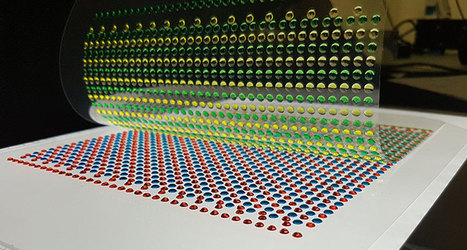"New power sources bear a shocking resemblance to the electricity-making organs inside electric eels. These artificial electric eel organs are made up of water-based polymer mixes called hydrogels. Such soft, flexible battery-like devices, described online October 13 in Nature, could power soft robots or next-gen wearable and implantable tech."
Research and publish the best content.
Get Started for FREE
Sign up with Facebook Sign up with X
I don't have a Facebook or a X account
Already have an account: Login
 Your new post is loading... Your new post is loading...
 Your new post is loading... Your new post is loading...

David Parr's comment,
July 9, 2013 6:35 AM
Interesting thing about birds is their two-phase lungs. I did the first steps of analysis on adapting that kind of system to a building scale heat exchanger last year.

David Parr's curator insight,
July 9, 2013 6:36 AM
Interesting ideas, though being inspired by tornadoes and hurricanes should be 'meteomimicry'. Also, I've always found bird's two phase lungs a more interesting model than their feet. |
|












